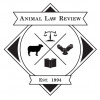Volume 25, Issue 1 (2018)
Articles
This Article seeks to identify how the U.S. Twenty-Eight Hour Law, requiring feeding, water, and rest for specific animals being transported after twenty-eight hours of travel, is not being adequately enforced by United States Department of Agriculture (USDA) or United States Department of Transportation (DOT). In this Article, AWI first establishes the legal background of the Twenty-Eight Hour Law and subsequent regulations implemented by the USDA and DOT. Next, AWI discusses the recent history of the law’s implementation, or lack thereof, by these Departments and enforcement protocol of the Investigative and Enforcement Services for the Animal and Plant Health Inspection Service (APHIS). The Article then establishes how the current implementation of the Twenty-Eight Hour Law by this agency fails to monitor a large quantity of animal shipments and is insufficient in prosecuting or detecting violation of the law. The Article concludes that the USDA has statutory authority to implement the law and suggests numerous mechanisms for improving the implementation of the Twenty-Eight Hour Law.
Mark I. Weinstein, Veterinary Lien Laws: Hypocrisy in a Healing Profession
This Article discusses the problem of veterinary lien laws that treat companion animals as inanimate objects, in a modern society that often views pets as members of the family. Historically, pets, like automobiles, were subject to possessory liens. If an automobile owner couldn’t pay the repair bill, the mechanic could keep possession of the car or sell the car to recoup costs. Veterinary lien laws treat companion animals in a similar fashion. If the owner cannot not pay the veterinary bill in full, the veterinarian is often permitted to keep possession of the companion animal until the bill is paid. Typically, after some designated time-limit expires, the companion animal is deemed abandoned and the veterinarian may sell or euthanize the animal. This Article highlights the hypocrisy of the veterinary industry that benefits from owners treating pets like family while simultaneously treating pets as mere property by using veterinary lien laws to assert liens against these owners.
Ann Linder, The Black Man’s Dog: The Social Context of Breed Specific Legislation
Hundreds of communities throughout the United States have imposed breed-specific dog laws that prohibit ‘pit bulls’ in the name of public safety. This Article examines the relationship between pit bulls and people of color incorporating new research to argue that these laws may be rooted in racial bias. In such instances, breed-specific bans function as a means of keeping minorities out of majority-white neighborhoods. Finally,
this Article suggests that if true ownership data mirrors the perceived ownership distribution measured here, such laws may be susceptible to challenge under the Fair Housing Act if it can be shown that they disproportionately exclude minority residents.
Notes
Dams are a critical threat to salmon habitat and population recovery. While much progress has been made in the past few years with dam removal, the more quickly dams are removed, the greater chance that salmon can be restored to their historic ranges. In the Pacific Northwest, dams are a particular threat to salmon. Many regulatory tools can be used to bring dams into compliance, but there is often much resistance to these efforts. This Essay proposes that by targeting dilapidated private dams opposed to functional ones on public land, compliance or removal will be achieved with less resistance and hassle. By making such dams a priority, more salmon habitat will be restored with comparatively little effort. Targeting private nonfunctional dams is a cost-efficient step that will speed much needed salmon habitat recovery.
Animal Law Review is located in Wood Hall on the Law Campus.
MSC: 51
Editor in Chief
Suzannah Smith
eic-animallaw@lclark.edu
Managing Editor
Aaron Kline
me-animallaw@lclark.edu
Executive Editors
Bailey Grinter
Macaela Burke
ee-animallaw@lclark.edu
Animal Law Review
Lewis & Clark Law School
10101 S. Terwilliger Boulevard MSC 51
Portland OR 97219
